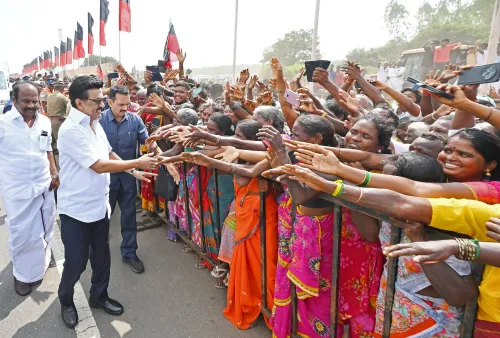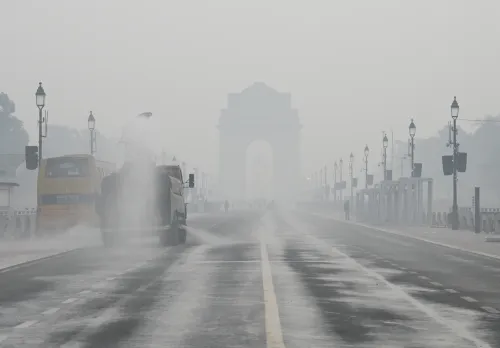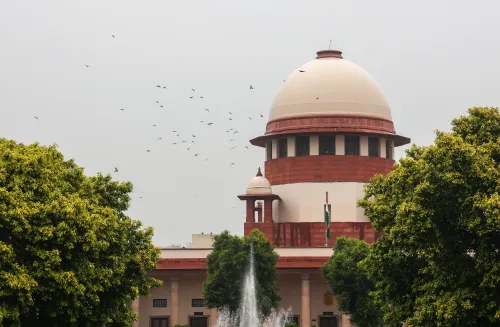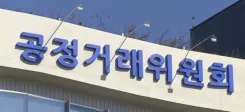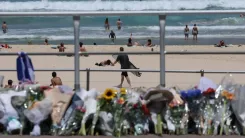Did the Left Alliance Secure All Seats in the JNUSU Elections?
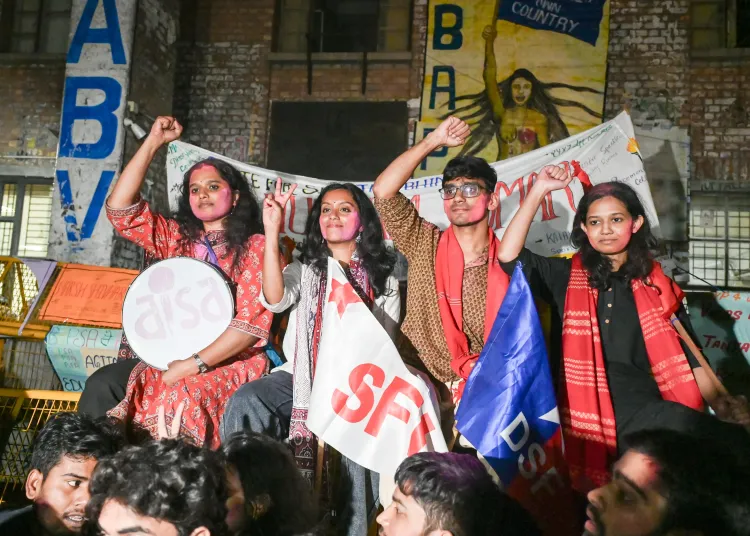
Synopsis
Key Takeaways
- Aditi Mishra elected as JNUSU President.
- Left alliance regained all four central panel seats.
- Voter turnout was recorded at 67%.
- ABVP struggled to repeat last year’s performance.
- Issues raised included academic environment and campus facilities.
New Delhi, Nov 6 (NationPress) The Left coalition has decisively won the Jawaharlal Nehru University Students’ Union (JNUSU) elections, successfully reclaiming all four key central panel positions. In a significant victory, Aditi Mishra has been elected President, as confirmed by an official statement on Thursday.
Mishra garnered 1,861 votes, defeating Vikas Patel from the Rashtriya Swayamsevak Sangh-backed Akhil Bharatiya Vidyarthi Parishad (ABVP), who received 1,447 votes, by a margin of 449 votes.
In the race for the Vice President's position, Kizhakoot Gopika Babu from the Left secured 3,101 votes, while Tanya Kumari from the ABVP trailed with 1,787 votes.
The contest for the General Secretary role was particularly close, with the Left candidate winning by a mere 24 votes. Sunil Yadav, representing the Left, received 2,005 votes against Rajeshwar Kant Dubey from the ABVP, who got 1,981 votes. Furthermore, Danish Ali clinched the Joint Secretary position with 2,083 votes, defeating ABVP's Anuj Damara, who managed 1,797 votes.
The alliance comprising the All India Students' Association, Students' Federation of India, and Democratic Students' Federation swept the elections, overcoming the ABVP's challenge, which failed to replicate its previous year's performance when it had won one seat.
The elections, conducted on November 4, allowed students to vote for the President, Vice-President, General Secretary, and Joint Secretary, along with various faculty councillor roles. A turnout of 67% was observed, with 9,043 students eligible to participate. The previous elections had a voting percentage of 70%.
From the outset of the vote counting, the Left alliance maintained a lead for the President, Vice-President, and Joint Secretary roles. The ABVP only led in the General Secretary position initially. The NSUI, which is supported by the Congress, also fielded candidates but did not pose a significant challenge.
The voting process occurred across eight polling centers at the university on Tuesday, beginning at 9 a.m. with two shifts. The first shift concluded at 1 p.m., followed by the second from 2:30 p.m.
The election campaign saw various student organizations addressing a range of issues, both national and campus-related. The ABVP focused on topics such as research fellowships for scholars, transparent hostel allocation, enhanced Wi-Fi facilities, and the need to bolster the academic environment.


